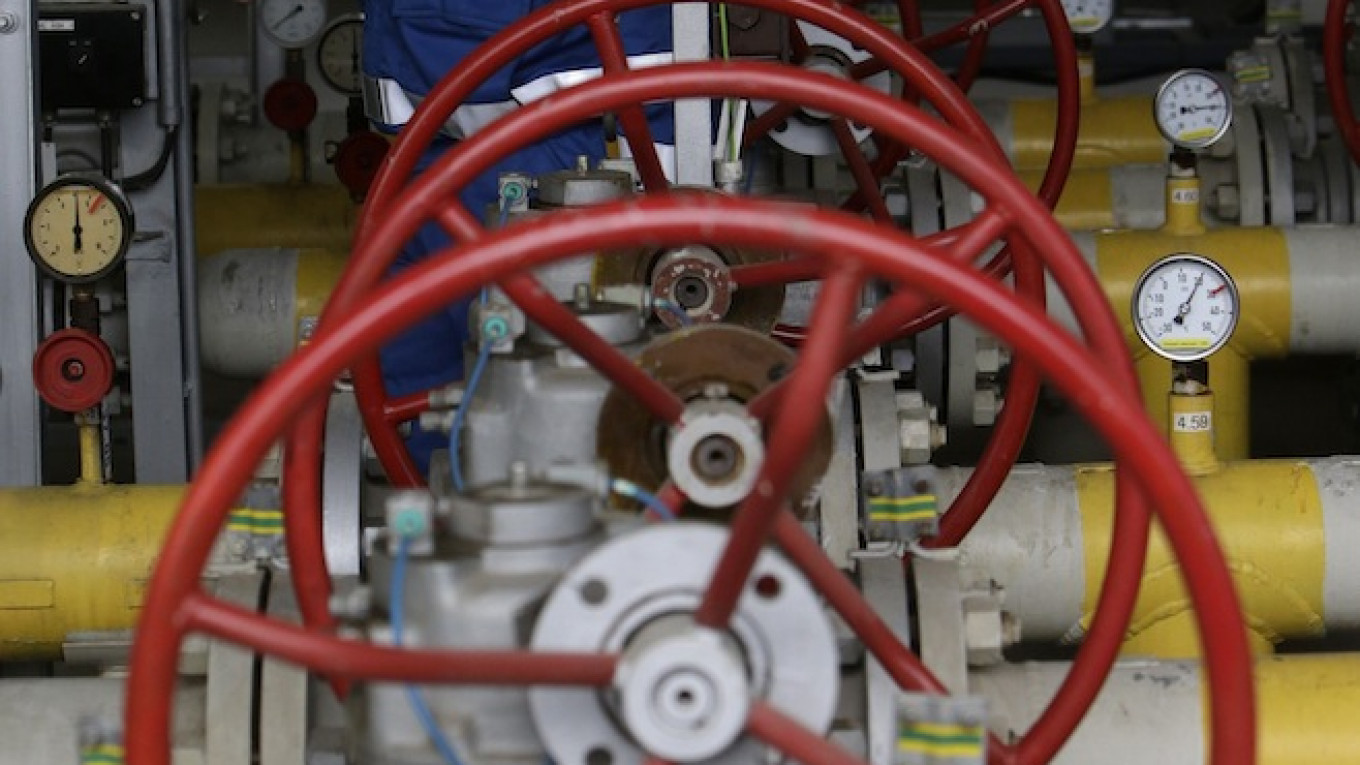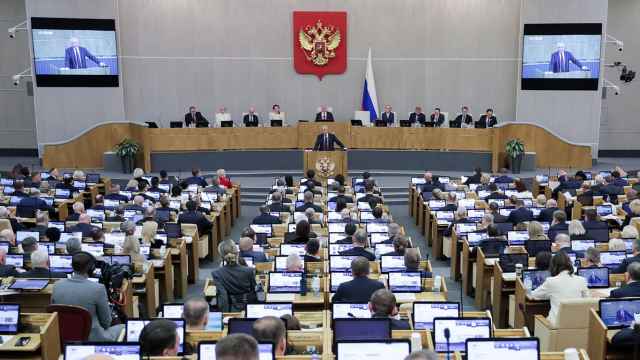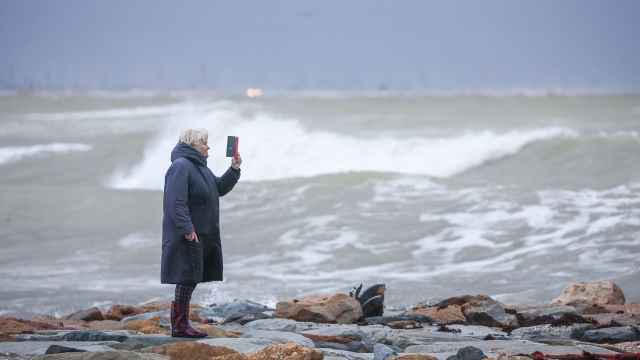PRAGUE — Slovakia's national gas company has concluded back-up deals for gas deliveries to help the central European country cope with supply cuts after big reductions in volumes from Russia this week.
Slovakian Prime Minister Robert Fico said Thursday that state importer SPP recorded a more than 50 percent drop in flows for the second day in a row after smaller reductions for most of September.
Slovakia is among several central and southeastern European countries that have experienced reductions in supplies of Russian gas after EU countries raised shipments of gas eastward to Ukraine, including a new connection from Slovakia.
Fico — who called the cuts a political play by Russia — told a news conference after an emergency government session that SPP had concluded a five-year deal with E.ON Global Commodities to supply up to 2 million cubic meters per day via Austria when needed.
SPP also detailed a Wednesday purchase of gas on the spot market in Austria, saying deliveries would come in the current fourth quarter and first quarter of 2015 if needed.
Fico said Slovakia could also use reverse flows of gas from the Czech Republic to supply customers — meaning a pipeline traditionally used for shipments through Slovakia to the Czech Republic would be used in the opposite direction.
Fico's administration has had warm relations with Moscow and has criticized the EU's sanctions against Russia. But he said Moscow, which is backing pro-Russian separatists in eastern Ukraine, was now using gas as a political tool.
"We are convinced that, considering also gas prices which are not moving much, that this is a political war where gas is being used as a weapon," he told a news conference shown live on television. "You know well where gas is flowing from."
SPP said the new deals would significantly help Slovakia diversify gas sourcing.
"We are capable of securing over 30 percent of standard daily consumption … from independent sources in the event of an extraordinary situation, and so greatly reduce our dependence on supplies from the east," Chairman Stefan Sabik said.
Slovakia is an important country for transit of Russian gas through Ukraine to the European Union, although Gazprom has increasingly used alternative pipelines through Belarus and the Baltic Sea.
It was not clear what exact daily amounts SPP was requesting nor what Gazprom was delivering.
Gazprom said on Thursday that its daily volumes delivered to Slovakia — 48 million cubic meters — had not changed in the past 10 days. This is in line with data released by the Slovak pipeline operator, Eustream. However, this amount is shared among multiple buyers, in Slovakia or elsewhere in the EU.
At the same time, Ukraine was to receive 24.8 million cubic meters from Slovakia on Thursday. This included Norwegian gas for the first time, a source in the Ukrainian energy sector said Thursday. Fico said such reverse flows would continue.
It was not clear who was the buyer for any potential extra gas that was not allocated to SPP.
Slovakia has filled 91 percent of its 3 billion cubic meters gas storage capacity, including about 1.5 billion owned by SPP.
Fico said if supply reductions continued, SPP would lead talks on the potential usage of gas belonging to foreign firms and stored in Slovakia.
A Message from The Moscow Times:
Dear readers,
We are facing unprecedented challenges. Russia's Prosecutor General's Office has designated The Moscow Times as an "undesirable" organization, criminalizing our work and putting our staff at risk of prosecution. This follows our earlier unjust labeling as a "foreign agent."
These actions are direct attempts to silence independent journalism in Russia. The authorities claim our work "discredits the decisions of the Russian leadership." We see things differently: we strive to provide accurate, unbiased reporting on Russia.
We, the journalists of The Moscow Times, refuse to be silenced. But to continue our work, we need your help.
Your support, no matter how small, makes a world of difference. If you can, please support us monthly starting from just $2. It's quick to set up, and every contribution makes a significant impact.
By supporting The Moscow Times, you're defending open, independent journalism in the face of repression. Thank you for standing with us.
Remind me later.






